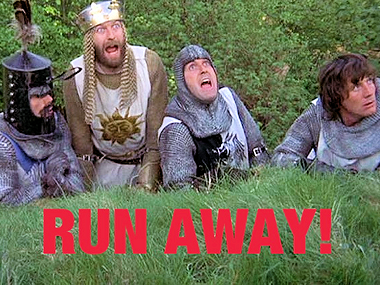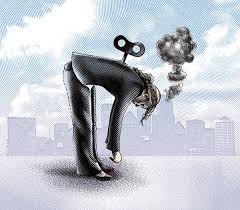
Last week the report into the needless deaths at Gosport Memorial Hospital was published. It revealed that at least 450 lives of patients admitted to this hospital were shortened ie in Plain English, people died, due to inappropriate prescribing of heavy-duty opiates. In a hard-hitting foreword to the report, the Chair of the Independent Inquiry the Rt Reverend James Jones uses terms sadly very familiar to harmed patients and families, and to those of us deemed “whistleblowers”, “troublemakers” and “vexatious complainers”. These include “obfuscation”, “closing of ranks”, “betrayal”, “powerless”, “anger”, and “frustration”. I have not experienced direct harm in the same way as these families, but being of the “speak truth to power” type, I am painfully aware of these terms.
What has come out has left me with a deeply unsettling feeling of deja vu and an equally intense foreboding for the future.
I have a reputation for a clearly reckless tendency to say when the Emperor is in a state of undress, and have not hesitated to do so in my sometimes life-draining experience of working as an “outsider inside”. I have done so for years within the NHS and other healthcare organisations such as the Kings Fund who, despite being nominally “independent”, in fact tend to mirror exactly the culture about which they claim to be “thinktanking”. Perhaps therefore it is no surprise that I am burnt out, worn out and only starting to emerge over the side of the rusty skip onto which I have been chucked.
It came as something of a surprise therefore to be approached by two radio stations for my views on Gosport. I did not relish this and had to give some thought as to whether to agree. In the end, I decided that those of us who feel able to speak out, must use every opportunity to get our points across. As I am not directly affected by the outrage at Gosport, it is not easy to dismiss me as “angry brigade” which is what I know happened to the families raising concerns. I have seen this happen time and time again. People are unheard. People’s anger and frustration builds up, becomes embedded and in the absence of an outlet, can boil over leaving the person unable to trust anyone in authority at all. This plays right into the hands of those in the system as it becomes much easier to negate and shove in the “difficult patient/carer” box. And so the merry-go-round spins on…

And so I found myself being interviewed by Radio Scotland and by Julia Hartley-Brewer on Talk Radio with which I had not been familiar. Julia HB was all too familiar. It was going to be a challenge, as our views on most things are at polar opposites.
I think I managed to get over my views but we were of course limited by time constraints so I decided it merited a blog. This is a complex issue that goes back decades and is about deeply ingrained cultural norms, attitudes and group-think. I will attempt to unravel my spaghetti-headed thoughts on the whole thing:
I am shocked at the scale of what the inquiry unearthed but sadly, not surprised. Both through being a long-term patient, and until I became ill again with work-related stress, a consultant to healthcare organisations, I have gained a wide perspective of the culture of the NHS. Despite the rhetoric, it remains a very defensive culture and I believe this defensiveness is due in no small part, to fear.
People genuinely are afraid to speak out and they are right to be, as those who blow the whistle often face dire consequences. Also in a target-driven, highly pressured culture where there is significant bullying in places, it has been demonstrated that even the most compassionate people get cut off from their own values. Mid Staffs was a case in point. Families who have experienced avoidable harm, in my experience, do not want revenge or massive lawsuits and compensation, they want accountability and the assurance that this will not happen to any other family in future. These families are a source of real insight into what needs to change and can be a huge part of the solution if allowed to be. Trouble is, they tend to be seen as a threat and stonewalled. This fundamentally has to change.
I have over the years experienced excellent care delivered by dedicated staff often doing so under extremely difficult circumstances. I do not wish to be seen as attacking the NHS. In fact I am devoted to the principles on which the NHS is founded. It “belongs to the people”. National NHS organisations hold it, ostensibly, in trust for us, the citizens. It is essential therefore that they hear us and work with us, and that means when things are going well, and crucially, when they are not.
It is the latter part of this that causes problems of course.
The culture of defensiveness – the taking to the bunkers in times of crisis, the unwillingness to “wash dirty linen” in public – goes back way before even the twenty years since concerns started to be expressed regarding Gosport.

In 1959, psychoanalyst Isabel Menzies-Lyth published a study of systems in hospitals describing the culture there as a defence mechanism against the anxieties raised by caring for people in life and death situations. The study looked at the behaviour of nurses on a highly pressurised teaching ward. There is much in this study of relevance to the debate still ongoing about NHS culture. Menzies-Lyth found that:
1. Efforts were made to create a distance between nurses and the patients. Instead of nurses concentrating on one or two patients they were required to do different tasks for different patients. This ensured that close relationships could not form and kept patients at a “safe” distance.
2. There was a tendency to depersonalise, categorise, and deny the existence of the patient as an individual. Beds would be made in the same way, and patients fed at the same time. Hospitals were highly controlled and regulated which offered real opportunities to hide behind procedures when faced with intensely emotional situations.
3. Staff often denied their own emotions. A “good nurse” was seen as a nurse who would not get too attached to a patient. Physical detachment achieved by the regular movement of nurses from one ward to another supported this psychological detachment.
4. Procedures and rituals were used to minimise the need to make decisions deemed too stressful and which had the potential to generate fear due to uncertainty.
5. Responsibility and accountability was deflected
6. There was a level of “purposeful obscurity” where it was not clear who was responsible or accountable for what and to whom. This enabled responsibility to be applied in general terms rather than directed at one individual.
8. Staff avoided the impact of responsibility by delegation to superiors. “Tasks,” she “were frequently forced upwards in the hierarchy so that all responsibility for their performance could be disclaimed.” Nurses tended to carry out mostly tasks well below their individual capabilities.
9. There was a tendency to avoid change. “Change,” she wrote, “is an excursion into the unknown.” Terrible consequences might follow. It was easier to hide behind “we’ve always done it this way”.
One quote from this work which resonates today given the experiences of the late Dr Kate Granger when she became a patient leading to the #HelloMyNameIs campaign is:
“By allowing for ritual task performance by depersonalising relations with the patients, by using organisational hierarchies, nurses contain their anxiety. Thus a patient becomes “the kidney in bed 14” or “the tracheotomy in ward B”. In this way, nurses limit the anxiety they would experience if each patient were to be dealt with as a full human being in need.”

This report happens to be about nursing staff. I do not wish this to seem like an attack on nurses in particular. In fact in Gosport some nurses did try to alert management as to what was going on and got nowhere. However, others have acknowledged that they turned a blind eye and one is on record as saying she had no idea why she had done so. In truth, the tendencies referred to in the Menzies-Lyth study apply to any professional group working in an under-resourced, over-pressurised hierarchy particularly one subject to constant “reform”. It is little wonder that the constantly shifting sands contributed to the culture of fear which then manifested in the sort of behaviour observed by Menzies-Lyth.

I should know.
My career before diagnosis with PTSD was in exactly such an environment. I did not work in the NHS but in a local authority. We were subjected to constant restructuring, having to apply for our own jobs, and to interference by elected politicians who created conflict as what they demanded was often not the same as what the management required. This rather chaotic environment created fertile soil for the growth of petty dictators who were lauded for “getting things done” in the sense that Mussolini got trains running on time. The impact on the human beings who were being placed under intolerable pressure to meet the targets imposed from above was glossed over. Our Chief Executive was a bully with deep insecurities particularly around those of us he deemed “intellectual” or “academic”. He had good reason for his paranoia. He was exposed (by myself and a colleague as it so happened) for having falsified all of his qualifications. That came after our trade union had exposed him as a bully and chief perpetrator of an organisation-wide culture of fear. He was not sacked. He knew where bodies were buried.
I too put up with a lot of it and indeed did turn a blind eye to unacceptable things like Councillors fiddling expenses, as I was absolutely devoted to the people in the communities overseas with whom I worked. My doctor kept begging me to leave for the sake of my physical and mental health. I could not countenance that as I believed I WAS my job. Without that identity, I simply did not exist. So I carried on. It was a disaster waiting to happen. My colleagues were killed in Belarus in a rather scandalous episode the circumstances of which I was expected to cover up. I could not do that with something of this level. I took to alcohol to create the level of dissociation required to keep going. I see this a lot in the NHS. NHS staff are well-represented in the AA meetings which I now attend.
One day, I was sitting in a management meeting. I was asked a question about one of the communities with which I was working, as I recall, in Zimbabwe. I realised that at that moment, I had NO opinion. I had become frozen. I did not care one way or the other. I knew then that something profoundly wrong had happened to my personality. I knew deep down that I cared deeply but I had become completely distanced from my own humanity. I packed up my desk that day and did not go back.

When I first heard about Mid Staffs I was horrified of course. I asked myself how on earth could staff become so detached from the values that made them go into healthcare, that they would walk past clear instances of neglect and abuse.
It was extremely uncomfortable to reflect later on, that in fact, I had gone through the same process myself. And if it could happen to me, it could happen to anyone.
This is not to say that staff should not be accountable. Absolutely they must. However, we need to look at those at the top who are NOT on the front line, not subject to the consequences of their own management styles, and ultimately, paid enough to shoulder accountability. The problem is that the upper echelons of the NHS contain more than their fair share of narcissists who lack insight, empathy, and have become so detached, so convinced of their own importance, that they profoundly will not believe this song is about them, to quote Carly Simon.

There are good people at those levels too who have generally survived through being in that grey area of being neither too openly good, nor openly bad. Despite the sound-bites to the contrary which emanate from the Transformista Cult, they do not rock boats, and they do not draw too much attention to themselves either good or bad. They have drifted upwards, unfettered by too much scandal, or too much success. They KNOW very often that the unacceptable is going on, but seem unwilling or unable to do anything about it. There were some very good people from the upper ranks of the NHS on the Expert Advisory Group who endeavoured to advise Jeremy Hunt on the design of the new Healthcare Safety Investigation Branch. I was a member. I received more than one message from these highly-paid individuals saying that I was the only one with the guts to express openly what they were all thinking. It reminded me of when I spoke out about the bullying in my old organisation along with a few other courageous/foolhardy types. The majority of people told us they were fully “behind us”. What they meant was a considerable way behind us, behind a wall made of bomb-proof concrete.

I was asked on Radio Scotland what I believe the solution is…not an easy ask in a ten minute interview.
Firstly, I am NOT an expert. I am an observer. The outsider/inside role with a range of healthcare organisations has however, given me a genuine “helicopter view” of the current landscape. I have given up on trying to change the mindsets of the narcissists at the top which is a waste of effort, or inject courage somehow into the veins of the good people at the top so that they start to risk saying it like it is.
I prefer to concentrate on the leaders of the future. I am given some hope when I meet with the new intakes of the NHS Graduate Scheme every year on their first day. They are very bright, their minds are open to new ideas, and they have not (yet) been got at. I like to think I am able to plant some seeds that in some maybe, just maybe, that will enable them to grow into leaders with integrity and the courage to speak truth to power, leaders who are not afraid to torpedo the boat if necessary rather than just conference-hop loudly proclaiming their radical “boat rocking” credentials but not doing anything that might disrupt the status quo.
A few years ago I worked with my first intake of Graduate Scheme trainees. I had yet to be aware that I seemed to be able to influence through the manner in which I shared my experiences as a patient. There was a very overwhelming response to what I said from the new trainees. Some came up to tell me what had motivated them to want to work in NHS management, some became tearful as they had only just realised the enormity of what they were doing and the potential to impact on the lives of ordinary people.
One trainee sent me an email during her first placement. She on her first ever night shift in A&E. She wrote:
“I just want you to know that I am remembering what you said in every patient that I see”.
This is why I choose to lay my painful experiences bare over and over again in the hope that in some small way I can make a difference. I must believe that it will. It is what makes me drag myself off the floor and somehow carry on.
The other key part of any solution will of course be a radical change in the way patients and families are perceived in the system. We are NOT the enemy. We are more than capable of understanding the reasons for errors, that human beings are fallible, and that staff are very often burnt out and drained. The tendency to retreat to the bunkers as soon as the shit heads towards the fan is doing NO-ONE any favours. I am painfully familiar now with the shut-down that happens when a failure or short-coming is exposed. Despite the fact that we would deeply respect professionals prepared to say “I got this wrong” and look at how to work different, very often the response is to batten down the hatches and we are met with a Berlin Wall of silence.
No wonder then, in a system so divided and divisive, we can be forced into Them and Us tribes. Instead we need to be able to meet in the no-mans-land between the opposing armies as genuine partners, each with a deep understanding of what it is to walk in the shoes of the other. This means that we must be present where the real power lies, at governance levels. We should not be limited to token patient story at the start of a board meeting, but as an equal member of the board itself.
Until this happens, we will continue to repeat the same mistakes. The NHS can’t afford this and neither can the citizens – the patients and families who stand to lose a great deal if, and indeed when, another Mid Staffs, another Southern Health, another Morecambe Bay, another Gosport hits the front pages.
Are you an NHS Leader hiding until it’s all over, or do you have the guts to free yourself and your subordinates from the merry-go-round?

I must add some links highlighting cases such as Nicos. It needs to get out there particularly this week when there is a frenzy of “ra ra” celebrations of how wonderful the NHS is. The founding principles of the NHS are worth celebrating. The national organisations which hold the NHS in trust are not worth celebrating. They are worth exposure. I will get onto that today. Thanks for responding.
LikeLike
I always take care to talk about the medical profession or specific NHS trusts, or the private contract organisations (Cygnet, Priory or whoever) when talking about failures in healthcare, and “the NHS” when talking about the funding model and threats to it (e.g. privatisation), because people who are opposed to the principle of a national health service (either here or in their country where they do not have one, and have an expensive and ineffective private health infrastructure instead) are happy to see everyone saying “the NHS sucks”. A lot of the wrongful deaths of people with learning disabilities and mental health problems in the UK health system are actually partly or entirely the fault of private organisations under NHS contracts, and our solution to a lot of these problems is more money, or at least more money spent on care and less on bureaucracy — the opposite of what the privatisers and anti-state-healthcare agitators want.
LikeLike
And I choose to talk about what my experience has been about which is in the national NHS organisations NHS England/Improvement and also the Department of Health, and looking at system-wide issues. I have had horrendous experiences in the private sector when farmed out to a hospital which was part of the Priory Group. However, I believe the buck stops with those who awarded the contract which was in fact NHS England. Fish rot from the head after all.
LikeLike
What a scary and yet hopeful report, Ally. Phew!
I came across the story of a nurse who is another kick-butt person I thought you’d need to know about! It is sooo refreshing to see other people speak out in their environment and reach of influence! Good on ya!
Check this lady out: http://www.kentonline.co.uk/canterbury/news/anger-as-nurse-dismissed-for-161195/
This made my day!
LikeLiked by 1 person
This was a frightening – but important – piece. My family (in the U.S.) are/have been the victims of depersonalization and the resulting abuses that inevitably bring, especially towards those who can’t speak up for themselves directly, for so long I hate most “systems.” It’s always important to understand how such hellholes come to exist, but sadly I wish the piece had ended with how to fight them…
LikeLike
I think the key is to fight their tendency to “divide and rule”. Social media for example offers far more opportunity not just to get the truth out there but to connect with others in the same position. “Don’t panic, organise”. I might update the blog with exactly this point. Thanks for the feedback!
LikeLiked by 1 person
Another post that uses tragedy to focus on the most important person in your world – you.
I think you’re probably a very nice person Alison but you need to seek treatment for your hyper self-obsession, your willingness to play the victim for attention and your utter lack of any morality when offered any self publicity.
We need debate not your senseless self promotion.
You’ll delete this comment of course
LikeLike
I write not in the least for the motives of which you accuse me. It shows you have totally failed to understand what my work is about and what motivates me. On the contrary, I AM posting this as an example of the kind of offensive trolling to which I am thankfully only occasionally subjected.
LikeLike
Is Chester you ex boss?
LikeLike
I have no idea who this “Chester” is who manages to pop up under various handles on Twitter as well. They use similar themes every time which makes it very easy for a linguist like myself to identify the patterns. I note these trolls never have the guts to use their own name. I do get affected if I am feeling low when I see this stuff but am trying to develop something of a protective layer. People say they get something from what I write, and it helps me a lot too, for that reason I keep going.
LikeLike
Hi Ally, yes just keep writing your blog; anyone who hasn’t the guts to put his/her name to his/her comment is saying more about him/herself than anything else. Just a shallow little person, take no notice. There are many of us that want to read more about your account of time spent working within the NHS.
LikeLike
I was joking about him being your boss.
The person in question does not like you speaking out & is very bitter for some reason, feeling the need to try & lash out with that very nasty, peculiar ad hom comment.
Their problem, not yours.
I’m sorry you get this sort of response.
LikeLiked by 1 person
I am lucky that I don’t get this kind of thing very often. It does make me look at what I do and why which is no bad thing. I have a friend who speaks out in support of Grenfell families and the constant stream of abuse she gets, mainly from men, is utterly disgusting. Thanks for your support.
LikeLike